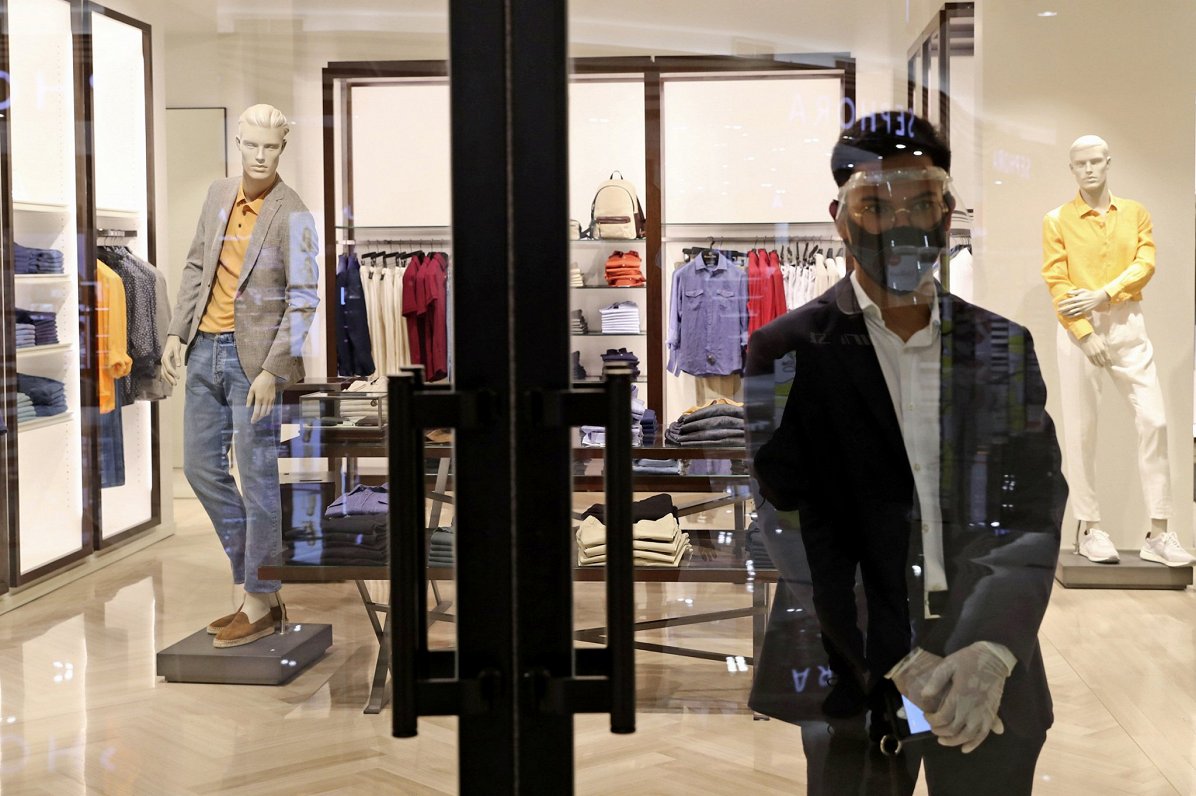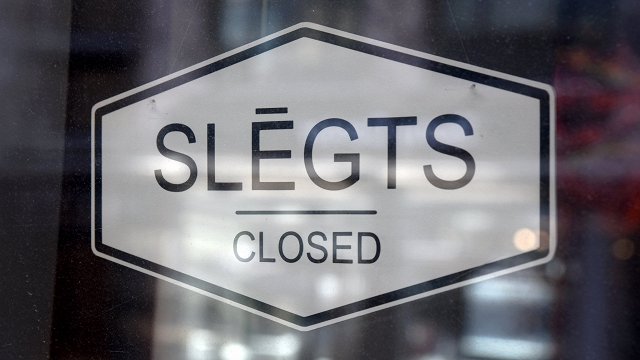In clothing and footwear sector, there is the greatest concern that many merchants may not survive. Several stores and chains have already closed their doors forever.
Data compiled by Eurostat shows that in December last year, which is the main marketing month of the year for many traders, overall sales turnover in the European Union (EU) even increased by 0.5% compared to the last month of 2019.
However, looking at individual sectors, the picture is not so homogeneous. Turns out, the entire December increase among the big retail industries consists of food. Compared to the last month of 2019, its sales volumes in the EU have increased by 5%.
In other retail sectors, there is no increase in December.
Latvia also has a very similar situation as Europe as a whole. Data from the Central Statistical Bureau showed that overall retail sales increased by 1.5% last year and mainly by food and fuel sales. In December, although overall retail sales in Latvia decreased by 4.4% compared to the same time a year ago, food sales experienced a rise of 3.4%.
“If we compare the food industry with others, in good or “peace” times, when other industries are growing very rapidly, we are pleased to see a slight increase, while in such circumstances, when there is an extreme situation or crisis, other industries are experiencing a sharp and significant fall or even going bankrupt, but the falls in food business are not so radical. War or peace – food will always be needed,“ said Toms Didrihsons, Chairman of the Board of Orkla Latvija.
Fuel sales also increased by 6.4% in Latvia last year. Traders of household electrical products, medical products, sports goods and household goods are also among the winners.
Among other trading sectors, clothing and footwear traders have experienced the biggest drop during the pandemic. In addition, with a few moments of respite, they have had difficulties since the Covid-19 infection came to Europe.
Statistics show that in April 2020 clothing and footwear sales nearly stopped and experienced a significantly higher drop than other retail sectors. After that, the clothing sector has done not particularly well. A good illustration of what is happening is the fact that in July, when there is a traditional summer sale time, 2020 sales of clothing and footwear in the EU have been 18% lower than in July 2019. November and December had a drop of 30-40% in volume in the clothing industry, along with new restrictions.
Latvian statistics also show that last year clothing and footwear sales have seen the biggest drop in all retail sectors – by nearly 17%. In addition, the drop in December, compared with this time a year ago, has been even at 40.2%.
The huge decline is based on two reasons. Firstly, remote work has been introduced in a very large number of sectors and people do not have to go to offices every day and consider whether their external appearance is sufficiently representative and meets the expectations of the company or of their own. Same applies to restaurants, theaters, nightclubs and many other places for which people would dress up.
Secondly, although it will be difficult to find a clothing seller who would not offer their goods on the Internet, it is likely that there is still a large enough proportion of consumers who, before buying clothing or footwear, find it important to try them on.
In Latvia, last year volumes have also decreased in book and record sales, cosmetics, information and communication technology equipment and in some areas.
In the Baltic, the biggest changes so far have hit the Estonian clothing manufacturing and marketing company, Baltika Group, which announced late last year that it would continue to retain only one brand of clothing, Ivo Nikkolo, which offers garments to women. So far, the Baltika Group's stores worked with brands “Monton,” “Mosaic,” “Ivo Nikkolo,” “Baltman” and “Bastion.”
Internet sales do not bring salvation, either. If a Latvian sales company is only part of a larger trade group, Internet shops are most commonly registered not in Latvia, but in the country of the parent company.
“A popular government comment at this time is that everything can be bought on the Internet, but companies anyway have their own business models. If we are talking about “Baltika Latvija”, then we do not have our own Internet shop. We are a subsidiary, but the Internet shop is owned by a parent company that sells directly from Estonia. Our country receives nothing from it, we don't get anything from it, since basically in January the turnover and income of stores and the Ltd are completely zero. We are not selling or earning anything,” Jevgēņijs Kozlovs, board member of Baltika Latvija, told LETA.






























